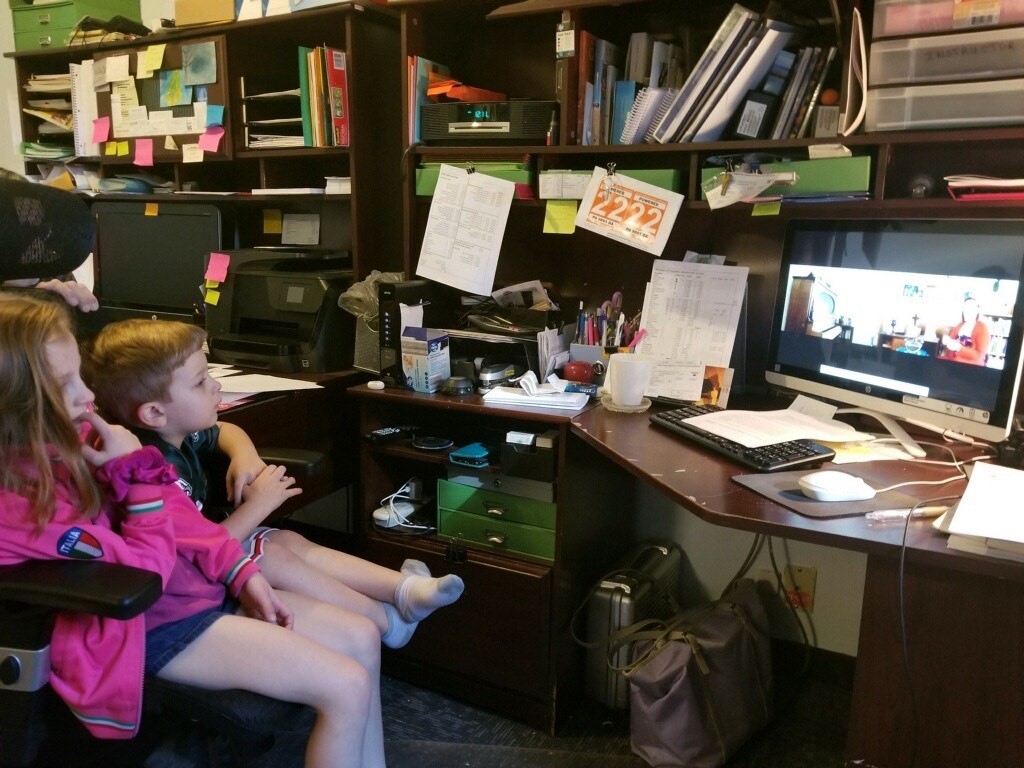One of the biggest concerns for churches amid this coronavirus pandemic is how they collect an offering when worship is online. Will people continue to support the mission and ministries of their congregation if they themselves are out of work? And if people can give, does the church have the online ability to receive it? Or will people remember to contribute on Monday morning by putting a check in the mail?
But an “offering” is more than a monetary gift. If people are unable to give from their purses and wallets, there are other forms of giving that should not be overlooked. That’s the message the Rev. Dr. Martha Jordan delivers to the two congregations in the Presbytery of Lackawanna that she presides over on Sunday mornings from her living room during worship when the offering is normally collected.
“For me it’s a reminder that (an offering) is more than just finances,” she said. “If we truly are a church that right now is without a building and is not able to gather, how do we act as a church?”
The transitional pastor at both Wyoming Presbyterian Church and First United Presbyterian Church of West Pittston, Martha has been delivering an online worship service to both congregations since the second Sunday in March. Because of flooding that occurred in West Pittston in 2011, First UPC has been worshiping in Wyoming Church’s sanctuary – and for the last year the two congregations have been worshiping together – making the transition for both congregations to hear the same online service seamless.
In April, First UPC set up a donation page through the Presbyterian Foundation for people to give online, while Wyoming Church does not have an online option for receiving such gifts. To help promote the new way of giving, Martha wondered how she could have a time of offering during her weekly service. But due to the difference in giving options, Martha had to be creative in how she approached the subject.
During the moment for the offering, she told people it was a good time to write a check to be mailed later in the week, or for those from First UPC, they had the option to give digitally.
“But it’s also more than just the financial part,” Martha said on a recent Sunday morning. “How are we giving of ourselves? I actually had one or two people reach out to me to say they appreciate that, the opportunity to be reminded that this is not just about finances. We are a church and part of that means we do things for people. We are servants, so we go and help serve.”
When Martha first added an offering time in her service, she included this writing in the bulletin:
The Christian life is marked by the offering of one’s self to God. In worship, God presents us with the costly self-offering of Jesus Christ, who has claimed us and set us free. In response to God’s love in Christ we offer our lives, our gifts, our abilities, and our material goods for God’s service. At this time, you are invited to give. For some that may be using your bank app to request sending a check to the church. For others, it may be using the online giving for West Pittston. For others it may be writing out a check that you can mail later today. I also want you to think about giving of yourself. Think about a way you can give of yourself. For some that may be picking up the phone and calling someone. For others, it may be delivering groceries or toilet paper or essential supplies. For others, it may be doing yardwork for someone who could use a hand.
The earth is the Lord’s and all that is in it, the world, and those who live in it. Ps. 24:1
“Do what you can,” Martha said, summarizing her message. “Sometimes it’s also just as valuable to have somebody do something for you rather than contribute money. Making a mask right now is a huge gift to somebody who doesn’t have access to a mask. Getting somebody to drop off food because you’re scared to go out is a huge comfort to somebody.”
Martha estimates that giving is down close to 30 percent in her two congregations due to the loss of jobs, but thanks to endowment funds both congregations can continue their ministries. It makes for a unique period for the two congregations that Martha has only been overseeing in her transitional role since Ash Wednesday – that’s just two Sundays in the pulpit before transitioning to online worship due to the pandemic outbreak.
“I was very nervous about it,” Martha said about making the decision to do worship online. “I explained to people that as someone who is supposed to help shepherd this congregation, I feel it’s my responsibility to keep you safe.”
Martha has been receiving positive feedback from both congregations about her leadership during this unique time, and it’s a coincidence that she is not taking lightly.
“I really feel like God has called me to these two churches to explore what the future is,” she said. “That was really my call: to explore the future and could they at some point possibly merge. It has helped them to see what it means to be church, but it has also helped me to explore with them who are they and what are they called to do as a church. And how do they do that when they can’t get together? It’s definitely not the ministry I expected on Ash Wednesday.”


